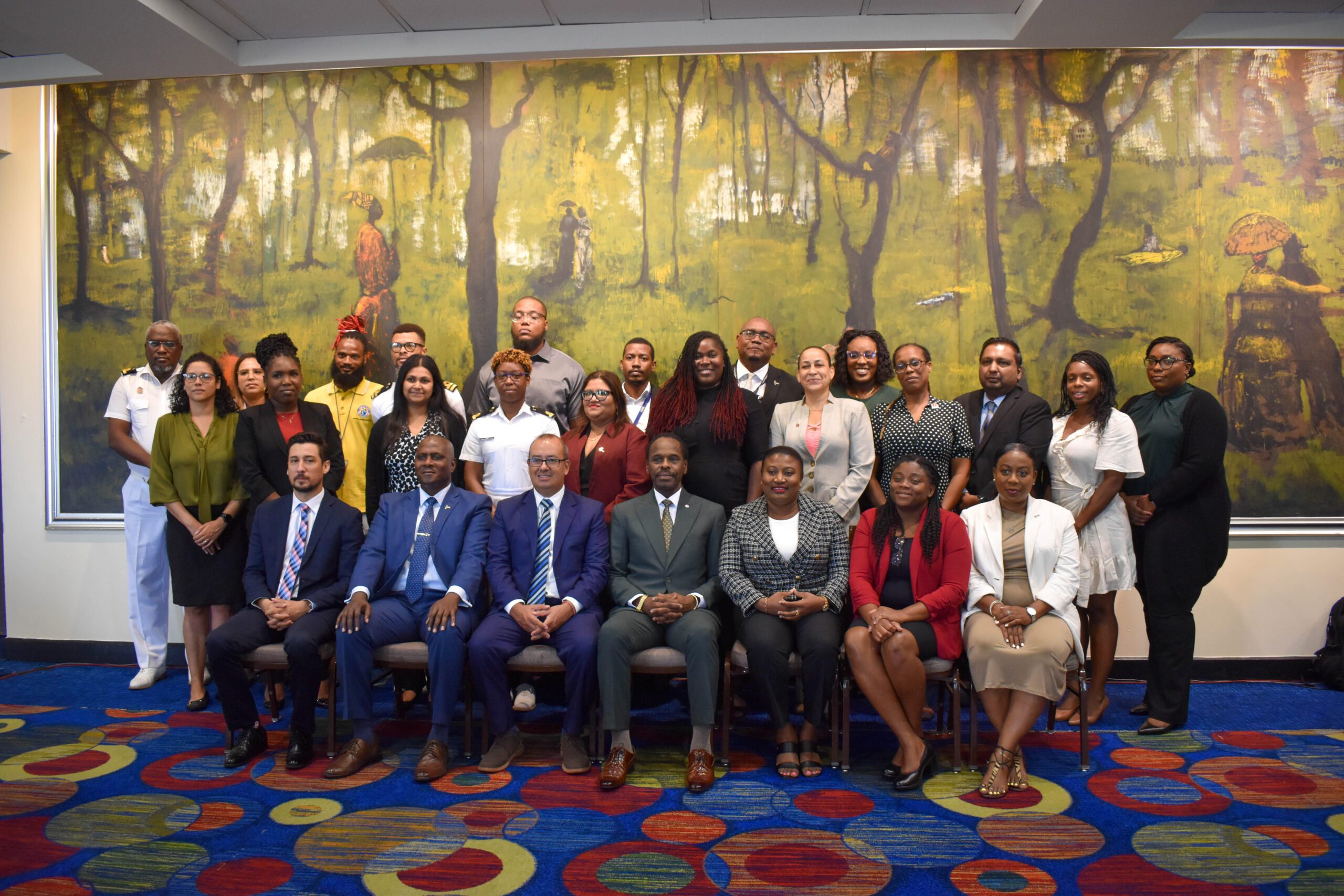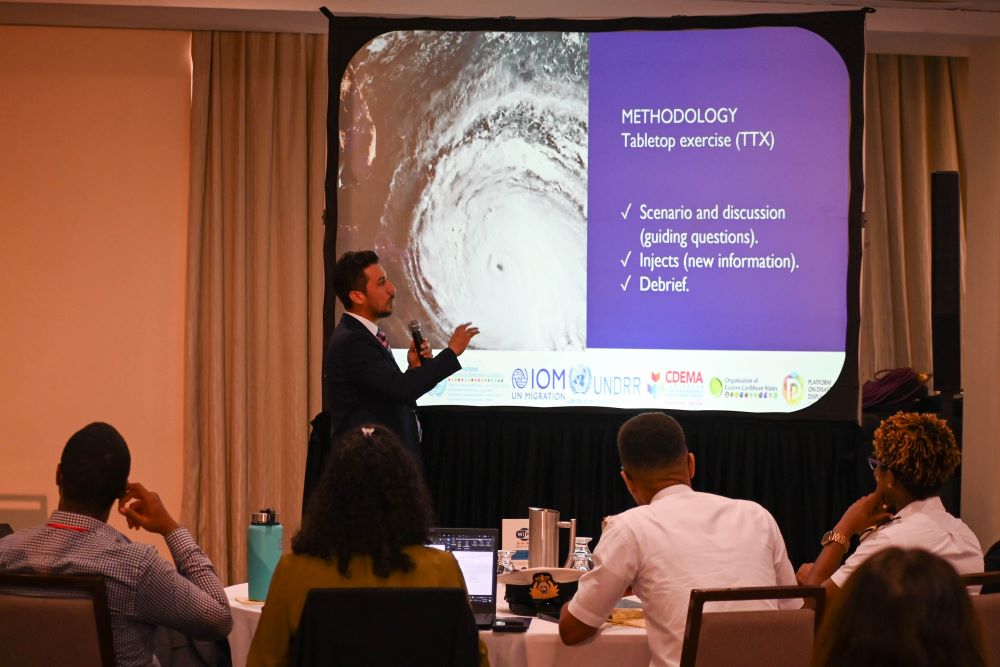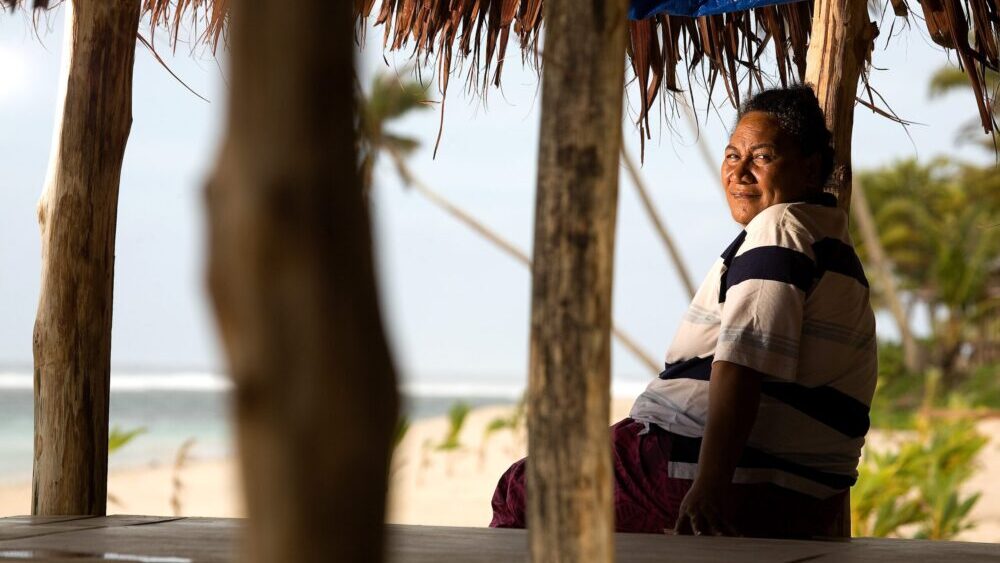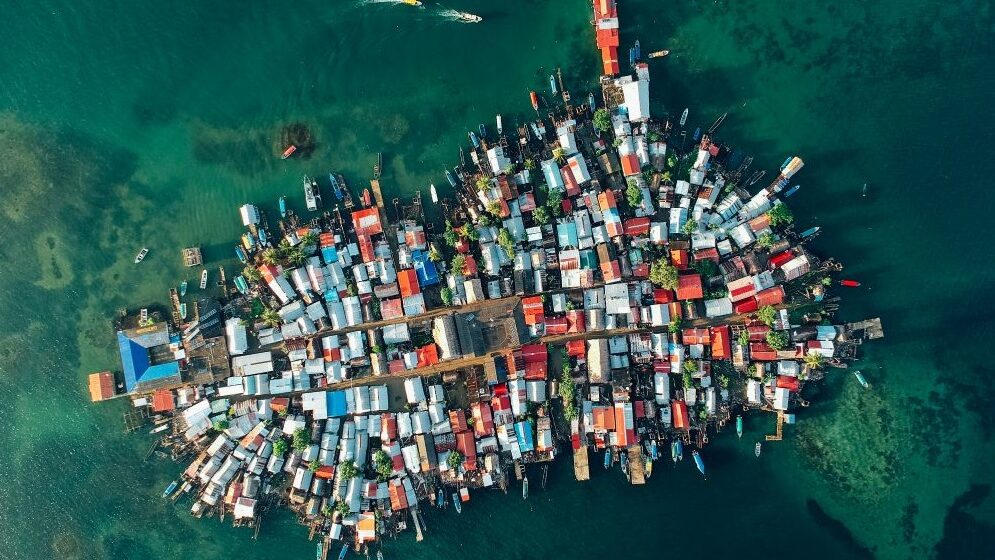21 June 2024, Geneva, Switzerland - The Platform on Disaster Displacement (PDD) and the Special…

Disaster Displacement, Disaster Risk Reduction and Human Security: Strengthening Disaster Resilience in the Caribbean
On 8-9 May 2024, government representatives and other stakeholders from across the Caribbean gathered in Trinidad and Tobago for a technical workshop on “Disaster displacement, disaster risk reduction and human security.” The workshop was organized under the United Nations Trust Fund on Human Security (UNTFHS) joint program “Promoting a Human Security Approach to disaster displacement, environmental migration and disaster risk reduction in the Caribbean”.
Caribbean small island developing states (SIDS) are disproportionately affected by disasters and the adverse effects of climate change. Displacement within these contexts, both internally and across borders, presents a significant challenge for the region.
This two-day regional workshop aimed at strengthening capacities to address disaster displacement. This was achieved by introducing and promoting the application and implementation of:
A human security approach to human mobility within the context of disasters and the adverse effects of climate change
The human security approach is defined in UN General Assembly Resolution 66/290 (2012) as “an approach to assist Member States in identifying and addressing widespread and cross-cutting challenges to the survival, livelihood and dignity of their people.” It is people centered, comprehensive, context specific and prevention oriented.
The protocols for cross-border evacuations in the Caribbean
In 2023, protocols for cross-border evacuations were developed for the Caribbean region. As part of the workshop, stakeholders engaged in a dynamic tabletop exercise that simulated real-life disaster scenarios to test these protocols. The interactive exercise aimed to assess and increase awareness of these protocols and provided valuable insights into the challenges of addressing disaster displacement within the context of regional and bilateral agreements between countries in the Caribbean.
The Making Cities Resilient 2030 Initiative, the Scorecard for Resilient Cities, and its addendum on disaster displacement.
The Making Cities Resilient 2030 Initiative is led by the United Nations Office for Disaster Risk Reduction (UNDRR) and aims to accelerate the implementation of the Sendai Framework at the local level through an integrated and people-centered approach to urban resilience, climate adaptation, and risk reduction. As part of the workshop, participants were introduced to the Scorecard for Resilient Cities and its addendum on disaster displacement. Designed as a self-assessment tool, the Annex on disaster displacement empowers local governments to design, formulate, and implement policies that address the needs of displaced persons in times of crisis.
The workshop underscored the interconnectedness of preparedness, response, and resilience within disaster management frameworks. By combining practical simulations with evidence-based strategies, stakeholders gained a comprehensive understanding of the complexities in addressing disaster displacement.
The joint program funded by the United Nations Trust Fund for Human Security is led by the International Organization for Migration (IOM) and partners include the United Nations Office for Disaster Risk Reduction (UNDRR), the Caribbean Disaster Emergency Management Agency (CDEMA), the Organisation of Eastern Caribbean States (OECS) Commission, and the Platform on Disaster Displacement (PDD). The program is implemented in Anguilla, Antigua and Barbuda, Barbados, the British Virgin Islands, Commonwealth of Dominica, Grenada, Jamaica, Montserrat, Saint Kitts and Nevis, Saint Lucia and Saint Vincent and the Grenadines and Trinidad and Tobago.
Photo credits: IOM Caribbean
Useful Links and Documents
Learn more about the UN Trust Fund for Human Security
Learn more about the Cross-Border Evacuation Protocol
Learn more about the Making Cities Resilient 2030 Initiative





